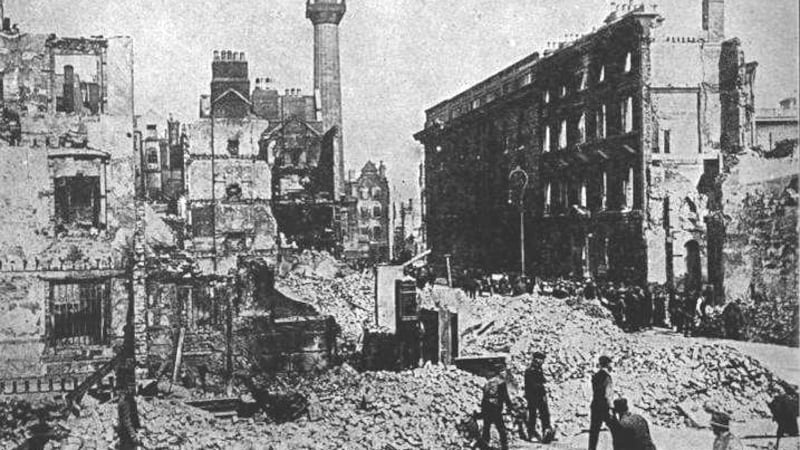JIM Prior, the then secretary of state, asked me once why the Provos stopped short of driving the north into an all-out civil war or putting bombs in the London underground to force the British government to the negotiating table.
The question took me by surprise but I answered by saying that it was Catholic morality that stopped them driving things to the brink and killing in the indiscriminate manner that bombs in the underground stations would mean.
The question and the answer comes into focus on a morning when the Roll of Honour of volunteers who lost their lives during the 1916 Rising is read in the yard of Dublin Castle and the Taoiseach will mark the official opening of the 100 year celebration.
In the coming year, every aspect and nuance of the 1916 Rising and the establishment of the Irish State will be analysed.
I noticed that the Archbishop of Dublin recently pointed to the part played by Catholic priests in the days surrounding Easter 1916.
He asked that their positive pastoral contribution be remembered.
The same point was made about the role of Catholic priests during our recent ‘troubles’- viewed by many of the Catholic flock as a continuation of the unfinished business of 1916.
As one who was there I sometimes think it was a comfort to take refuge in pastoral activity because of the moral ambiguity that lay at the heart of Irish Catholicism and indeed of Irish politics.
Officially the Church was against violence and in opposition to the 1916 Rising and the ‘northern troubles’.
But the official position was so full of holes and codicils that all the combatants and a large percentage of the ‘Christian faithful’ could use their national aspirations to puncture holes in it or to see it as irrelevant.
If my memory is accurate the Catholic flock was about half and half for the ‘boys’ (as they called the Provos).
Or more accurately, they moved up or down on the continuum of violence/anti-violence -- depending on what the Brits or the loyalists did.
The just war theory that underpinned Catholic morality on this issue was of no great help.
Most people didn’t understand it and it could and often was tugged and hauled to meet any argument.
The pacifism that was expounded by the small congregation of Quakers was written off as quaint or eccentric.
The Provos grew out of this moral confusion and instinctively knew the boundaries.
Outright civil war and bombs in the underground were originally outside the moral compass.
But violence takes on its own life and eventually becomes its own master.
In the early days, the Catholic conscience thought that children or women being killed would terminate the conflict but the children and the women died and the violence increased.
This naivety of contained, focused violence appears even more insipid in a context where the British and unionists had, long before, watered down their moral compass to the god of national security.
The Protestant churches had, for the greater part, bowed the knee to the same god and had entwined their moral antennae around national interest and the sacrifice of the men and women of the security services.
There was little to draw on from those quarters for those Irish Catholics who were confused and ambiguous about the morality of violence.
I would hope but have no expectation that I would hear a sermon on the issue in an ordinary parish church in the coming year.
Churches, Catholic and Protestant, will complain and protest that they are being excluded from the public square and will fail to see that this issue and the complex debate that it evokes is probably the most important public square of modern times.
But it will find a forum among the politicians when they argue their ownership of 1916.
It will become a heated debate when all the Irish political parties claim their moral and democratic authority comes from the men and women of 1916.
The temperature will rise further when the claim is made that the violence of 1916 was good violence while the violence of the forty years of the ‘northern troubles’ stemmed from criminality and anti-democratic roots.
There is a debate to be had. It should be honest and mature enough to admit that all our democratic institutions were founded on the back of violence and that part of our inheritance is the continuing ambiguity.









